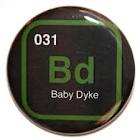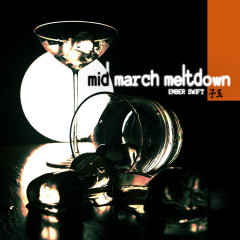Dyke Cousin: Parts 1 & 2
I know this is a blog about my partnership and the courtship that eventually led to my decision to get married to this creature known as Guo Jian. But, if this is a full story then you sometimes need some sub characters. Guo Jian’s cousin is one of those characters. She plays a role in this story of identity, identity politics, rebirth, re-assessment of self, and, of course, family. And, by that, I mean the blood ties, the chosen type, and the GLBTQ type. All of the above. So, I hope you’ll grant me the license to pause this main character portion of the tale to introduce this sub character: Wang Yin.
************************************************************************************************************************************************
Part 1
I met Wang Yin was when I came to Shandong, Guo Jian’s home province, for the first time, during the first few months of our relationship that spring of 2008. In fact, the day I arrived in the city of Zibo (a “small” Chinese city of five million people), we immediately went and picked her up at their grandfather’s place before heading full force into the mall for clothes-shopping, an activity that would characterize every journey to my partner’s hometown from that point forward.
She had come from the bus station and had a knapsack on her back, baggy jeans, sneakers, her hands pushed deep in her pockets and a permanent, shy shrug tucked between her eyes and her shoulders. Her short, cropped hair was super dykey and I just knew in an instant that she had to be family (and by that I mean the GLBTQ kind.)
Guo Jian is a shopping fanatic. He loves to go clothes shopping and he loves it even more when his Mother is paying. He’s finicky about clothes and both incredibly whimsical and infuriatingly controlling in a shop.
I can’t stand shopping with him.
I like to go in and out of a store quickly or else systematically walk a row of shops. He likes to wander aimlessly and follow his ganjue 感觉 (“feeling” but probably better translated as “vibe”) and when I loiter against his own particular shopping rhythm, it’s a giant affront to his personal wardrobe mission. The few times we’ve been shopping together, even when I had to find an alternate wedding dress, I spent more time holding his jacket and bag while he tried things on than I did finding anything for myself! We have always argued while shopping. It’s no fun.
So, yeah, he’s the queen and I’m the dyke in this setting, most certainly. That is, if we’re talking about stereotypes here. Which I am.
So Wang Yin and I were in that dyke role together on the day I met her, standing patiently at the shops’ entrances or at the mouth of the change rooms ready to convey our opinion or, in my case, urge him to make a decision. That’s another thing he’s terrible about: deciding on clothes. <Sigh.>
His Mother was there too, Wang Yin’s aunt. She straddled both worlds, sometimes joining us in the waiting and sometimes actively shopping with him.
Wang Yin barely said anything. In the limited exchanges, we found out that we’re both tiger babies by the Chinese zodiac, but twelve years apart. I felt immediately like her big sister. That’s fitting because kids born in the single child generation are now very familiar with calling their cousins their siblings because they were raised so closely together. Guo Jian always refers to Wang Yin as his mei mei 妹妹 (little sister) and so I’ve taken to doing the same. She called me jie jie 姐姐 (big sister) right away and hearing it filled my heart with warmth.
I desperately wanted her to know about me. I wanted her to know I was family too. But how could I? I had never met her. Conversations about sexual identity don’t exactly happen in the first moment of meeting a person here in China, if at all, not to mention the fact that I was with my (then) boyfriend and his Mother! I felt myself melting into the clothing racks, invisible and a million miles away from a gay village.
Guo Jian’s mother, in a typical Chinese Mother way, pointed out Wang Yin’s hair and clothes while she was standing right in front of us, and laughed while asking me ‘didn’t I think she look she looked just like a young boy?’ Even the salesclerk was listening.
(Later I learned that this is common in Chinese culture; parents critique their children very openly and it’s meant to push them to better themselves. It’s all part of the “face” culture, in which you lose or gain face depending on the audience. Even though Guo Jian’s Mother is Wang Yin’s aunt, she had had a hand in raising her and thus, naturally falls into a parent’s role.)
I paused with that question. I had just met his Mother after all. I didn’t want to be rude to his Mom, but I also didn’t want to feed into the gender judgment. I said nothing and just smiled into Wang Yin’s eyes, but she wouldn’t hold my gaze. I wished my Chinese would generate faster comebacks and I kept thinking about what I could have said.
I got my chance a bit later when his Mom repeated the comment again when we had arrived back at their home.
This time, I was ready:
“I don’t think she looks like a boy, no. I think she looks like herself!”
Wang Yin found my eyes without my psychic prodding. She held them for an instant. Just long enough for recognition. I hoped she could sense my sisterhood.
Part 2
That night, as we were lying in bed in a separate room in the cramped two-bedroom apartment that we were sharing with five other people, I wanted to talk about Wang Yin.
We had our own space for the first time all day with a door that closed while his parents slept on the floor in the living room. I was aghast at that, by the way, but tried to just let it be after my initial protests were whisked away. I tried not to imagine the uproar in my house back home if my parents didn’t get the most comfortable bed in a sleeping arrangement. Respect for parents is different here. Differently expressed, I should say. Equally required.
The lights went out and I tried to use my Chinese in a whisper in the dark in order to express the notion of “gaydar,” but the best I could come up with was this: “tongxing lian de ren shuo women you yi zhong xiang guangbo de yige dongxi. Zheige dongxi rang women ganjue dao biede tongxinglian de shihou. Nide meimei rang wode guangbo ‘ding ding ding’ xiang le! 同性恋的人说我们有一种像广播的一个东西。 这个东西让我门感觉到别的同性恋的时候。你的妹妹让我的广播“叮叮叮”响了! It was very clunky Chinese: “Gay people say that we have a type of thing that’s a bit like a radio. This thing can make us sense other gay people. Your cousin makes my radio ring out with a ‘ding ding ding’!”
I’m sure that my Chinese was just pitiful but…
He got it.
“Really?” he asked and I nodded. She hadn’t come out to him yet. He wasn’t perfectly sure but he had sensed the same thing. She had never had a boyfriend, he said, and she always was like she is now: ‘not like other girls.’
“Of course, we’re not all like that,” I explained. We queers come in all shapes and sizes, degrees of femininity and masculinity. I think in some ways, it’s hardest on those like Wang Yin, though, especially while living in a society that doesn’t formally or culturally (at least not in terms of traditional culture) recognize queerness in its existence, let alone in its legitimacy. Thankfully, my partner is not a traditionalist and nor is the arts community in Beijing.
He gets it.
(A requirement, I might add.)
On that short weekend trip to his hometown, though, all I could do was observe and smile at Wang Yin. She did the same towards me. Whether or not there was any acknowledgement on her part, I have no idea, but I had never felt so much like bursting my identity confessions to a near stranger in all of my life. The language barrier was an issue, for sure, but the biggest problem was that we were never alone and, even if we could have been, she was so shy and young and off in her own world of constant texting and muffled phone calls with someone, (whom I assumed to be her girlfriend), that it wasn’t realistic on any level.
And, really, who was I to be imposing my identity and visibility issues onto her!? If she wasn’t out yet, why did I think it was my job to grab her hand and lead her out, even to her liberal male cousin? How could I possibly understand what it’s like to be queer and Chinese and living where she’s living? And what made me think that outing myself would be of any use to her, or give her any solidarity or sisterhood beyond what she could already get from me regardless of my sexual identity?
And, what’s more, was it fair for me to assume my gaydar to be infallible within this new cultural context? I mean, hadn’t I assumed that Guo Jian was gay when I met him, dressed in his floral jacket and looking so pretty?
Right.
I realized, with a gulp, that coming out to her was really just about me–completely selfish. I had dealt with feelings of invisibility (of my full self) while holding onto Guo Jian’s hand before but these issues were never more evident to me than when a fellow queer (as per my assumptions) was alongside of us, as a witness. I was face to face with my splayed out insecurities and it was humbling.
I got it.








